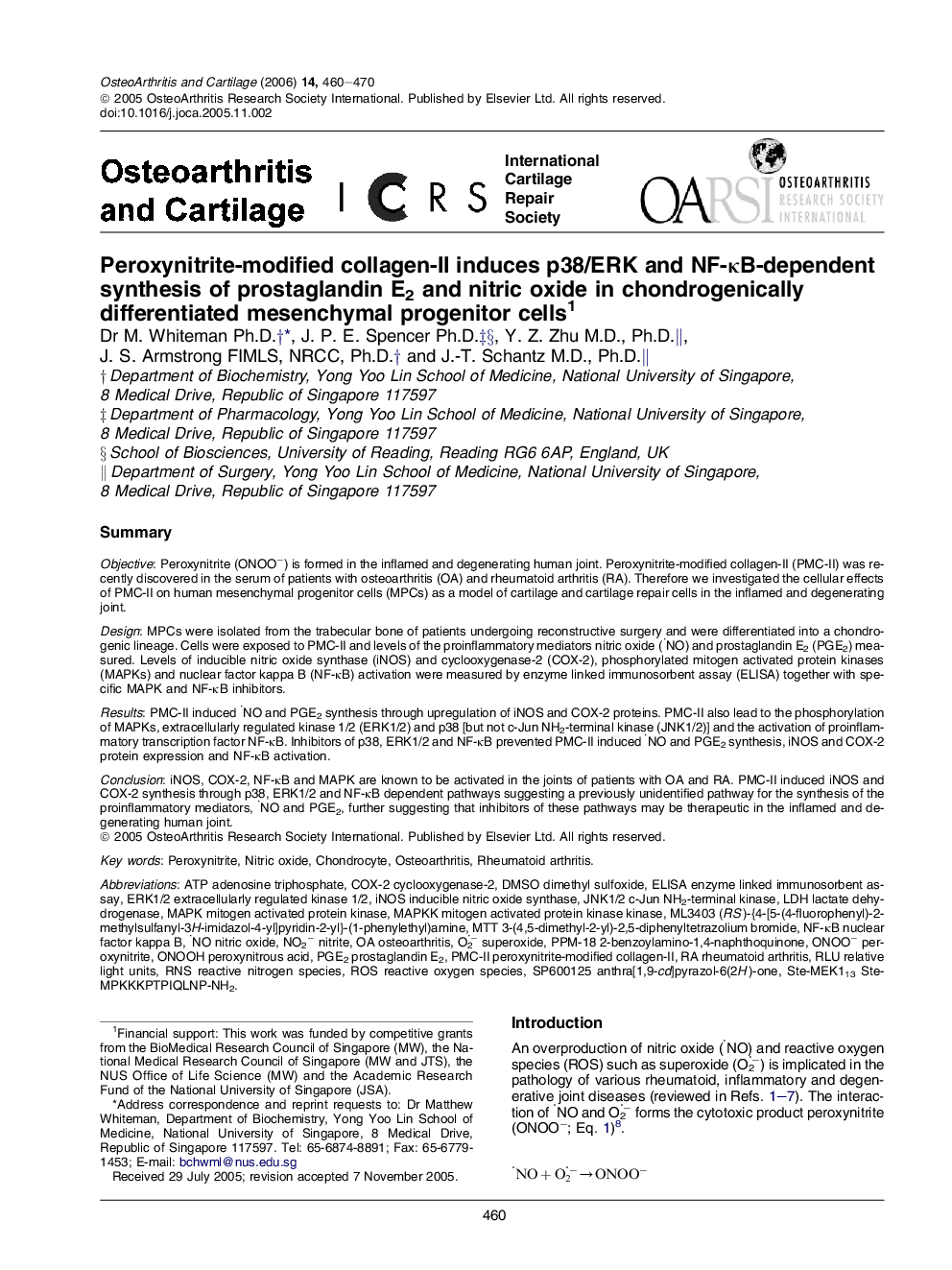| Article ID | Journal | Published Year | Pages | File Type |
|---|---|---|---|---|
| 3381489 | Osteoarthritis and Cartilage | 2006 | 11 Pages |
SummaryObjectivePeroxynitrite (ONOO−) is formed in the inflamed and degenerating human joint. Peroxynitrite-modified collagen-II (PMC-II) was recently discovered in the serum of patients with osteoarthritis (OA) and rheumatoid arthritis (RA). Therefore we investigated the cellular effects of PMC-II on human mesenchymal progenitor cells (MPCs) as a model of cartilage and cartilage repair cells in the inflamed and degenerating joint.DesignMPCs were isolated from the trabecular bone of patients undergoing reconstructive surgery and were differentiated into a chondrogenic lineage. Cells were exposed to PMC-II and levels of the proinflammatory mediators nitric oxide (NO) and prostaglandin E2 (PGE2) measured. Levels of inducible nitric oxide synthase (iNOS) and cyclooxygenase-2 (COX-2), phosphorylated mitogen activated protein kinases (MAPKs) and nuclear factor kappa B (NF-κB) activation were measured by enzyme linked immunosorbent assay (ELISA) together with specific MAPK and NF-κB inhibitors.ResultsPMC-II induced NO and PGE2 synthesis through upregulation of iNOS and COX-2 proteins. PMC-II also lead to the phosphorylation of MAPKs, extracellularly regulated kinase 1/2 (ERK1/2) and p38 [but not c-Jun NH2-terminal kinase (JNK1/2)] and the activation of proinflammatory transcription factor NF-κB. Inhibitors of p38, ERK1/2 and NF-κB prevented PMC-II induced NO and PGE2 synthesis, iNOS and COX-2 protein expression and NF-κB activation.ConclusioniNOS, COX-2, NF-κB and MAPK are known to be activated in the joints of patients with OA and RA. PMC-II induced iNOS and COX-2 synthesis through p38, ERK1/2 and NF-κB dependent pathways suggesting a previously unidentified pathway for the synthesis of the proinflammatory mediators, NO and PGE2, further suggesting that inhibitors of these pathways may be therapeutic in the inflamed and degenerating human joint.
